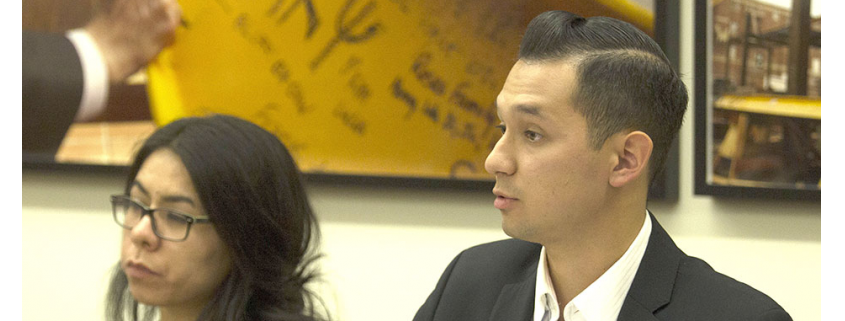USG discusses description of WSA workshop
An event hosted by the Women’s Student Assembly was the topic of debate at the weekly Undergraduate Student Government Senate meeting Tuesday night in the Ronald Tutor Campus Center.
USG held its “Open Forum” program in which non-USG students can come in, voice a comment and have a discussion with USG senators and meeting attendees. Tuesday’s non-USG visitor, Brandon Zelner, was not physically present, but delivered his comment through a letter.
In the letter, Zelner discussed the meeting “Decolonizing Healing,” held by the USC Women’s Student Assembly and Academic Culture Assembly on Monday. Zelner wrote that it was “highly concerning” that the two organizations receive funding from USG. He took issue with the event description that said “alternative methods of healing are just as valid, if not more valid, than pharmaceuticals,” calling it “misinformed.” He concluded by suggesting that USG funds be “redirected toward events in which students can learn where and how to receive both affordable and accessible health services.”
The first response came from Shyann Murphy, executive co-director of WSA.
“He wasn’t there at the event, so he has no idea what went on at the event,” Murphy said. “No one was saying, ‘Don’t go to a doctor.’ That wasn’t what we were advocating for.”
Murphy said that the event did not criticize people for “going to the medical-industrial complex” but merely explored alternative medicine strategies alongside those of traditional medicine, as well as the issue of why healthcare is inaccessible to large portions of the population.
Jacob Ellenhorn, commuter senator, said that though he agreed that being exposed to different forms of medicine was acceptable, the way USG-financed events are presented should be carefully examined.
“I think that the issue the person is really addressing is that, while an event might be a certain way, when it’s marketed, it is marketed as something that it isn’t,” Ellenhorn said. “The event description … described an event that seems a lot different from the event that you actually held.”
Ellenhorn suggested that for future event descriptions, hosts should avoid “loaded” or “controversial” language to make sure that USG doesn’t get perceived in “a certain way” by the student body. He pointed out two phrases in the description, “‘current methods’ include feeding into corporations that don’t really care about our well-being as persons …” and “… the medical-industrial complex is violent towards people,” as examples of such language. Murphy immediately responded.
“I agree that it’s important to have accurate event descriptions, but again, I feel that our event description was very accurate,” Murphy said.
Ellenhorn interjected, denying the accuracy of the description. Murphy asked Ellenhorn not to interrupt her.
She added that it’s impossible to capture everything that will happen in an event in a description. She then asked Ellenhorn, “How many event descriptions have you written in your life? Do you know that an event doesn’t always go as the event description dictates?”
Murphy also said that people should come to WSA’s events before voicing any criticism of the organization.
Other USG members, among them Luis Vidalon-Suzuki, assistant director of the ACA, and Sabrina Enriquez, residential senator, also voiced their opinions on the issue. Vidalon-Suzuki emphasized that group directors should be accountable to their constituents above all, and that they were just trying to bring in “new perspectives” during the event. Enriquez also stressed the importance of avoiding tone-policing and attending events in order to formulate critiques.
At the end of the discussion, Giuseppe Robalino, USG residential senator attempted to clarify the issue at hand.
“It is clear that the event was going to be about the synthesis [of alternative and Western medicine]. This isn’t about tone policing, either, because there is no resolution being brought up that is directly prohibiting the use of certain language,” Robalino said. “This is a direct examination … of the USG programming fee, the budget and that being used in terms of … generating turnout.”
Robalino said that Zelner, and constituents like him, did not feel welcome in WSA’s event because of the language in the event description. Robalino argued for “energizing the student body,” using USG funds efficiently, and ensuring that as few students as possible feel alienated from certain events.


Also, why ya’ll gotta try to ruin the only places where I actually don’t feel alienated.
but like I didn’t feel welcome at the Milo Yiannopoulos event put on by Ellenhorn himself. So if ya’ll so worried about alienation, why don’t ya’ll do something about that.